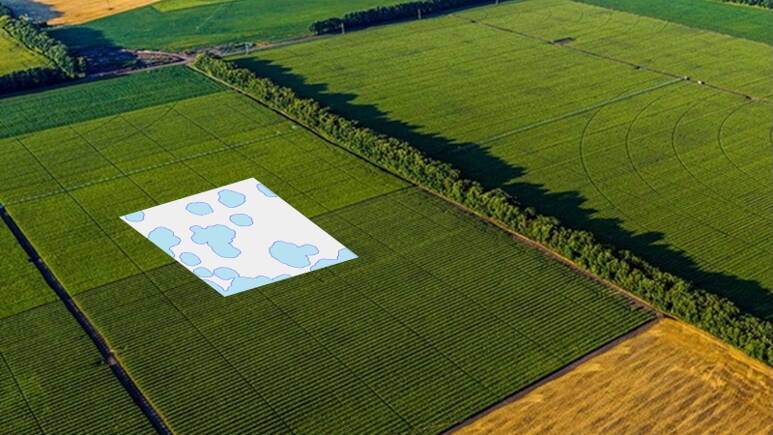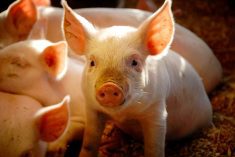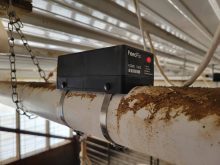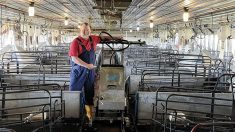They quarrelled on many issues, but the MPs on the Commons food safety subcommittee agreed an effective food safety system has to begin on the farm.
The committee reported to Parliament in mid-June with the Conservative MPs offering 22 recommendations and the opposition parties 14 proposals. The only idea that was immediately rejected by Agriculture Minister Gerry Ritz was the repeat of a call by the Liberals, NDP and Bloc Quebecois for a full-blown public inquiry into last summer’s deadly listeria outbreak.
He said CFIA is already working on improvements to its procedures based on the lessons learned from the listeria affair. The government will consider the subcommittee’s proposals along with the recommendations from special investigator Sheila Weatherill who was appointed by Prime Minister Stephen Harper to investigate how the deli meats from Maple Leaf Foods became contaminated.
Read Also

Predictive weed mapping, coming to a farm field near you
Geco–Gowan deal taps AI tools, imagery, to forecast weed-patch-prone field zones, so Prairie farms can preemptively target herbicides
The Conservative MPs want the government to “continue to invest in traceability to further protect the initial stages of the food supply chain and increase competitiveness by ensuring these costs are not passed on to Canada’s primary producers.” It should also encourage commodity groups to complete the process of adopting on farm food safety programs based on the international HACCP (hazard analysis and critical control point) standard to focus on the most vulnerable areas of food safety.
Thousands of on-farm food safety (OFFS) manuals have been distributed across Canada and Agriculture Canada needs to help all the groups finish their on-farm programs. “There needs to be some incentive for producers to participate. In the best-case scenario, producers will be implementing the program in response to market incentives where they get paid a premium,” the report said.
Government also needs a streamlined and efficient regulatory system that ensures producers “can operate in the most competitive environment possible.”
The opposition parties cited on-farm, biosecurity and traceability programs as key ingredients in a national food safety plan. Commodity groups have been developing on-farm programs since 2001. “Most commodities have received technical recognition by CFIA for their OFFS programs, and farmers’ representatives asked for continuous support from the government to help them fully implement their OFFS program and obtain recognition nationally and internationally.”
Among the groups that have achieved high producer participation are chicken, hog and dairy while horticulture, beef and sheep are moving ahead. The grain sector is working on implementing a process for certifying its OFFS program.
“OFFS programs identify such potential food safety hazards as chemical residues from animal health product use or pesticides, determines a number of procedures to eliminate those hazards, and defines the record-keeping procedures farmers have to follow to ensure that the program is correctly implemented.”
Biosecurity programs protect animals and prevent the spread of disease and “are particularly important in industries that commonly operate with confined animals.” Chicken Farmers of Canada and the Canadian Pork Council have among the most advanced biosecurity programs, the report notes.
An effective traceability system will enable “government and industry with a responsive capacity to deal with a disease outbreak when it occurs,” the opposition MPs said. “They are not preventive programs and apply not just to farmers but to the entire food supply chain.”
“Producers are willing to prove that the food they produce is safe through these programs, but government must know that there is an economic cost to producers to doing so without being able to pass it on to the rest of the supply chain,” the report adds.
Overall, the report concludes that food safety in Canada is generally good but the government needs to better co-ordinate its policies with the United States and Europe.
The opposition MPs also want the government to pay more attention to the safety of imported foods and clarify federal and provincial responsibilities in the event of foodborne illnesses. Health officials in Ontario and the City of Toronto, where many of the deaths and illnesses occurred, have complained that CFIA and other federal agencies responded too slowly.






![“If we get to the point that we have to use regulations to enforce [it], it’s not working.” – Cam Dahl, Manitoba Pork Council.](https://static.manitobacooperator.ca/wp-content/uploads/2023/06/22103423/hogs_cropped_cmyk-235x165.jpeg)







